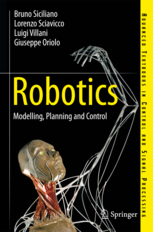Robotics 1
Prof. Alessandro De Luca
Dipartimento di Ingegneria informatica, automatica e gestionale Antonio Ruberti (DIAG)
Sapienza Università di Roma
Via Ariosto 25, 00185 Roma, Italy
office: A-210
tel: +39 06 77274 052
email: deluca [at] diag [dot] uniroma1 [dot] it
infostud code (for student graduation only): 114788
Academic year 2025-26 (first semester)
- The lectures of Robotics 1 of the current academic year 2025-26 will take place only in the classroom.
- The lectures of the course given in class in the academic year 2014-15 have been video recorded and are freely available in the Robotics 1 playlist of the Video DIAG - Sapienza YouTube channel.
Textbook
Google group
Booking of exams
Aim: This course provides the basic tools for the kinematic analysis, trajectory planning, and programming of motion tasks for robot manipulators in industrial and service environments.
Contents: Typical robotic systems are illustrated through examples of manipulators in industrial and service applications. The basic functional components of a robot are discussed: mechanics for manipulation, actuators and transmissions, proprio- and exteroceptive sensing devices, control architecture, and programming. Direct, inverse, and differential kinematic models of robot manipulators are analyzed. Trajectory planning methods are presented both in the joint and in the task (Cartesian) space. Simple control schemes are introduced, including kinematic control for robot arms and decentralized dynamic control for the single axes of a manipulator.
Prerequisites: The course is self-contained and does not need special prerequisites. Still, elementary knowledge of kinematics (as given in an undergraduate Physics course) and of linear algebra, as well as some background in Automatic Control are useful. The course is mandatory as an introduction to the advanced courses Robotics 2, Elective in Robotics, or Control Problems in Robotics. It is also suggested (but not strictly mandatory) for the two courses Autonomous and Mobile Robotics and Probabilistic Robotics.
Courses of study: M.Sc. in Artificial Intelligence and Robotics (MARR), M.Sc. in Control Engineering (MCER)
ECTS Credits: 6 credits (60 hours of classes, 5 hours/week)
Exams: written exam (+ oral examination, if needed)
Lectures
Period: first semester (September-December 2025; about 13 weeks)
Begin: Wednesday, September 24, 2025
End: Friday, December 19, 2025
Schedule:
| Wednesday | 15:00-17:00 (room B2, DIAG, Via Ariosto 25; building code RM102) |
| Friday | 08:00-11:00 (room B2; DIAG, Via Ariosto 25; building code RM102) |
Distribution of students according to the course of study:
2025-26: So far, 172 students as Sapienza members of the Google group: 113 MARR (18 international students), 30 MCER (3 international), 22 not yet specified, 3 MINR (1 international), 2 Erasmus and 2 EMAI (international)
2024-25: Total of 164 students as Sapienza members of the Google group: 117 MARR (9 international students), 29 MCER (5 international), 4 MINR, 10 Erasmus and 4 EMAI (international)
2023-24: Total of 146 students as Sapienza members of the Google group: 108 MARR (12 international students), 25 MCER (9 international), 11 Erasmus (international), 2 other courses
2022-23: Total of 151 students as Sapienza members of the Google group: 96 MARR (10 international students), 36 MCER (12 international), 10 Erasmus (international), 9 other courses or uncertain (2 international)
2021-22: Total of 147 students as Sapienza members of the Google group: 106 MARR (14 international students), 26 MCER (12 international), 12 Erasmus (international), 2 other courses (1 international)
2020-21: Total of 160 students as Sapienza members of the Google group: 120 MARR (17 international students), 31 MCER (8 international), 9 other courses (1 international)
2019-20: 102 MARR (29 international students), 36 MCER (14), 5 Erasmus (international); Total: 143 students (104 present at first lecture)
2018-19: 85 MARR (27 international students), 49 MCER (13), 8 Erasmus + 2 Others (all international); Total: 144 students (110 present at first lecture)
2017-18: 57 MARR (22 international students), 32 MCER (23), 3 other Sapienza (-), 10 Erasmus (international); Total: 102 students (71 present at first lecture)
2016-17: 54 MARR (12 international students), 26 MCER (14), 2 other Sapienza (1), 1 MINR, 9 Erasmus (international); Total: 92 students (71 present at first lecture)
2015-16: 46 MARR (13 international students), 24 MCER (12), 2 BIAR, 1 BSIR, 8 Erasmus (international), 1 PhD student; Total: 82 students (62 present at first lecture)
2014-15: 21 MARR (6 international students), 40 BIAR (3), 12 MCER (7), 4 MINR (2), 1 BSIR, 1 Physics, 8 Erasmus (international); Total: 87 students (76 present at first lecture)
2013-14: 32 MARR (14 international students), 33 BIAR (3), 5 MCER, 4 MELR, 4 BAER (1), 2 MINR (1), 1 BMER, 1 BCLR, 3 Erasmus (international); Total: 85 students (71 present at first lecture)
2012-13: 31 MARR (6 international students), 22 BIAR (1), 5 MELR (1), 4 BAER, 3 MINR (1), 8 Erasmus (international), 2 extra, 1 LAUR; Total: 76 students (74 present at first lecture)
2011-12: 32 MARR (14 international students), 24 BIAR, 4 MELR (1), 3 MCE (1), 1 MINR (1), 1 BSIR (1); Total: 65 students (54 present at first lecture)
2010-11: 28 MARR (6 international students), 12 LAUR/BIAR, 9 MELR, 2 Erasmus (international), 1 MMER; Total: 52 students (44 present at first lecture)
2009-10: 19 MARR (2 international students), 4 MINR (2), 1 BIAR; Total: 24 students (24 present at first lecture)
2008-09: 6 MINR (3 international students), 2 LAUR; Total: 8 students (4 present at first lecture)
Textbook
The new textbook for Robotics 1 is:

B. Siciliano, L. Villani, G. Oriolo, A. De Luca
Foundations of Robotics, Springer, September 2025
Download the latest Errata Corrige for this book.
Only selected chapters are part of the course program, but this book is a perfect reference also for further studies. Other course material (PDF of the lecture slides, technical papers, data sheets, videos, texts of exams (with or without solution), exercises) is available in this page.
The previous textbook for Robotics 1 was:

B. Siciliano, L. Sciavicco, L. Villani, G. Oriolo
Robotics: Modelling, Planning and Control, 3rd Edition, Springer, 2009
Google group
A Google group is available to post questions about the content of the lectures, exchange information and discuss the topics of the course in general. New registrations are not accepted after the end of the lectures. Groups of past years are still active (but no new registrations are considered as well).
URL: https://groups.google.com/a/diag.uniroma1.it/g/robotics1_2025-26
Email: robotics1_2025-26@diag.uniroma1.it
Access: Restricted to Sapienza students only (or by invitation). Please request admission at the URL using your first and last name as "Display Name"
and ONLY your institutional email address @studenti.uniroma1.it (if you don't have one yet, please explain your situation).
When applying, be sure to enter also i) your Master course of study at Sapienza
(e.g., Control Engineering (MCER) or AI & Robotics (MARR)) and ii) your current year of enrollment (first year, second year, ...) in the course of study
(or any other useful information) in the "Motivation" field. Incomplete requests will be discarded without further notice.
Booking of exams
Please book the exams via the web site Infostud, using your student ID ("matricola") and password. The same procedure applies also to incoming Erasmus+ students.
I open sessions only for the exam of Robotics I (code 1023235, 6 credits). For past versions (e.g., Robotica I (code 1027891, 6 credits), Robotics (code 1027894, 6 credits), Robotica (code 1023234, 6 credits)) and any other situation, please contact me in advance.
Registration to exams for the sessions of the academic year 2025-26 is open in Infostud.
The calendar of exams for the first two regular sessions of the academic year 2025-26 has been published on November 24, 2025. Booking of the next available regular session opens on Infostud at the closing date for booking the previous regular session. Extra sessions open at the latest one month before the exam date. The booking deadline of each session is 1 week before the date of the written exam.
- I session: written exam, January 12, 2026, 14:00, Room B2, DIAG
- II session: written exam, February 16, 2026, 8:30, Room B2, DIAG
- First extra session (only for part-time students or students of past years = "fuori corso"): tbd between March 18 and April 20, 2026
- III session: written exam, tbd between June 3 and June 26, 2026
- IV session: written exam, tbd between July 1 and July 17, 2026
- V session: written exam, tbd between September 1 and September 18, 2026
- Second extra session (only for part-time students, students of past years = "fuori corso", and students enrolled to the second year of a master degree in 2025-26): tbd between October 7 and November 5, 2026

